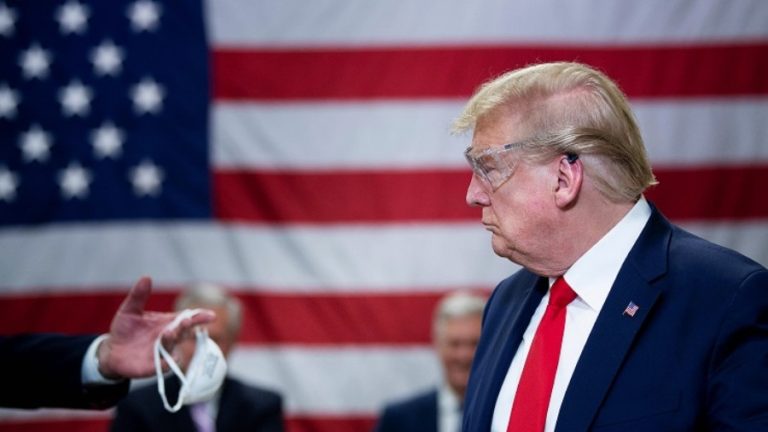War on Chinese Tech is a Way for the US to Continue Spying on YOU and the Rest of the World Unchallenged
America has been increasingly concerned about the potential for surveillance from leading Chinese tech companies. But a new report suggests the US is primarily concerned with maintaining its own dominance of digital espionage.
A running theme of Donald Trump’s administration over the past four years has been its relentless campaign against Chinese technology.
Claiming that companies such as Huawei, ZTE, Bytedance (the owner of TikTok) and many more are extensions of China’s surveillance state and are used to spy on people, the White House has sought to penalize them with sanctions, bans and export blacklistings, while encouraging other countries to shun them in the same way.
The narrative of the threat of Huawei, in particular, is one that has been largely taken at face value by the mainstream media in the west, with virtually no questioning of America’s motivations.
While one can talk about the US deliberately aiming to contain China’s technological rise to its own strategic ends, what if there was another angle to this saga? What if this crusade against Chinese firms was more about America’s ability to spy, rather than Beijing’s?
That’s what an intriguing new report on the Foreign Policy website might just be suggesting. The article claims that China, through its growing presence online, has allegedly been able to obtain enormous amounts of personal data, which in turn has been utilized to undermine and intercept the activities of the CIA around the world, especially when targeting Beijing.
It is argued that this strongly motivated Xi Jinping’s own anti-corruption drive several years ago, which aimed to purge the influence of the CIA from the Communist Party.
And so, the saga about the ‘threat’ of Chinese technology arguably has two sides to it. We are now in a ‘data cold war’, a strategic conflict for a new age which is far more extensive and sophisticated than Washington’s tensions with the USSR in days gone by.
Although the US attempts to portray itself as an innocent party in terms of global espionage by drawing a contrast with China – touting developments such as the misleading “Clean Network” – the reality is that it fears a future where global technology will be dominated by Beijing. This will undermine its own surveillance capabilities, which have traditionally been unparalleled.
As a result, it is spreading opportunistic paranoia that every single Chinese company is potentially ‘guilty by association’. But it’s not so much about what China has been proven to have done, than what the US itself is doing and has long done.
The past 20 years have heralded a digital revolution. Our lives have become inseparable from the online world. We communicate online via social media and messaging applications, we shop online, we bank online, we carry devices with GPS capabilities which set out every single place we’ve ever been. The Internet’s influence is everywhere.
This data matters, because whoever accesses it has the potential to be omniscient. During the first Cold War between the US and the Soviet Union, this factor did not exist. What was described as ‘espionage’ involved methods that now seem extremely old-fashioned, such as intercepting radio signals and relying on informants. The idea of hacking, and being able to access a comprehensive record of every single thing a person has ever done, was a fantasy that belonged in a science fiction novel.
But the ‘new cold war’ is very much immersed in the internet and online world. While the contest between the USA and USSR revolved around ideological dominance, now the US is battling with China to sustain its dominance in the digital sphere.
On this premise, it must be noted that it is Washington that has crafted and spearheaded the world of internet surveillance, rather than Beijing. It’s a trend which massively accelerated following 9/11 and the dramatic expansion of the National Security Agency (NSA).
Let us not forget that all of the world’s major internet companies – such as Google, Microsoft, Amazon and Facebook – are American. Through programs such as PRISM and XKEYSCORE they supply data to the US government. It is nigh on impossible for one’s data to avoid going through the US, which has enabled Washington to build a surveillance network with global reach.
Clearly, the rise of China as a growing internet and telecommunications player automatically challenges the dominance of the Americans and, as per the report, is allowing Beijing to undermine the operations of the CIA, which it is often the target of.
In 2017, the New York Times reported that China had successfully crippled CIA operations inside the country, showing the strength of its counter-espionage operation. Even if we recognize that allegations against companies such as Huawei have been opportunistic, it is implausible to deny the reality that with China’s strides in artificial intelligence and in other domains, its own espionage capabilities have become highly sophisticated.
And so, by default, Beijing has become a threat in an area which America has long dominated as the only major player. Thus, by aiming to contain leading Chinese technology companies, Washington is seeking to maintain its status as the world’s centre of gravity on the internet and, by extension, espionage.







